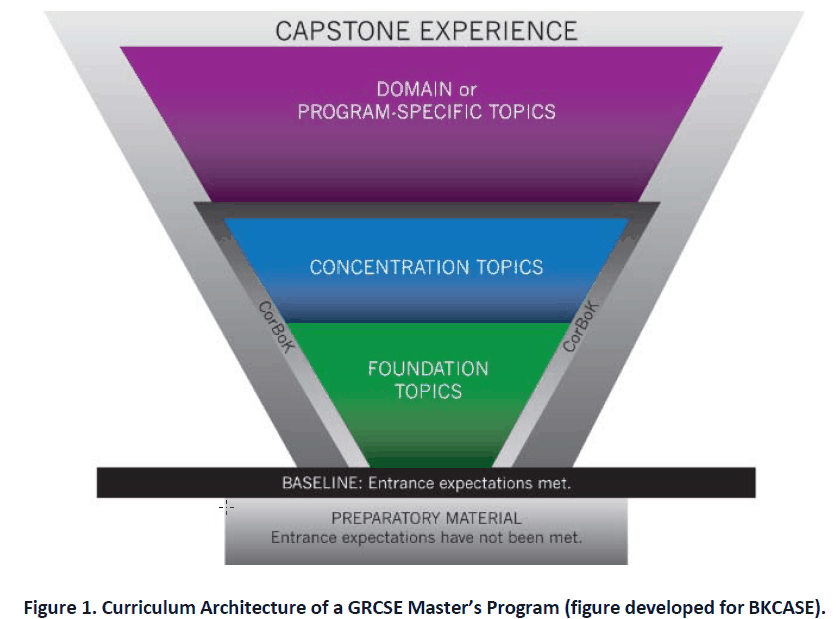Graduate Reference Curriculum for Systems Engineering (GRCSE)
GRCSE Sample Objectives.
1. Effectively analyze, design, and implement feasible, suitable, effective, supportable, affordable, and integrated solutions throughout the life cycle of systems of systems, enterprises, services, and products.
This could be tailored by explicitly stating the types of systems that graduates develop and a given domain (e.g., aerospace or telecommunications) or by specifying a portion of the system life cycle.
2. Successfully assume a variety of roles in multi-disciplinary teams of diverse membership, including technical expertise and leadership at various levels.
3. Demonstrate professionalism. Grow professionally through continued learning and involvement in professional activities. Contribute to the growth of the profession. Contribute to society through ethical and responsible behavior.
4. Communicate (read, write, speak, listen, and illustrate) effectively in oral, written, and newly developing modes and media, especially with stakeholders and colleagues.
The International Council on Systems Engineering (INCOSE) defines systems engineering (SE) as
an interdisciplinary approach and means to enable the realization of successful systems. It focuses on defining customer needs and required functionality early in the development cycle, documenting requirements, and then proceeding with design synthesis and system validation while considering the complete problem: operations, cost and schedule, performance, training and support, test, manufacturing, and disposal. Systems engineering considers both the business and the technical needs of all customers with the goal of providing a quality product that meets the user needs.
URL: http://www.bkcase.org/fileadmin/bkcase/files/GRCSE_0.5/GRCSE_Version0_5_Final.pdf

Dear colleagues,
Last night we released version 0.75 of the Systems Engineering Body of Knowledge (SEBoK) at http://www.sebokwiki.org/. This is the third release of the SEBOK, a product of dozens of systems engineering experts from around the world.
Version 0.75 primarily (1) adds important new material missing entirely from version 0.5, for example, articles on the relationship between systems engineering and software engineering; (2) improves some of the most immature 0.5 articles, and (3) responds to many comments provided by reviewers of version 0.5. The fundamental structure of the wiki remains unchanged with updates to around half of the articles. The entire wiki will undergo significant update between now and September when version 1.0 will be released.
From reviews of versions 0.25 and 0.5, we have benefited from over 4000 comments, but eagerly welcome more. We encourage all interested parties everywhere to provide review comments through April 15, 2012. Please look at the Note to Reviewer article in the wiki for more information. In addition to review, we encourage you to consider early adoption; i.e., we hope you find the articles a valuable resource.
The SEBoK has been supported by many organizations. We gratefully acknowledge them, most importantly, INCOSE, the IEEE Computer Society, the IEEE Systems Council, the Association for Computing Machinery, the National Defense Industrial Association, the Institute of Industrial Engineers, and the Systems Engineering Research Center. Primary funding was provided by the Office of the Deputy Assistant Secretary of Defense for Systems Engineering, with significant contributions in kind coming from the home organizations of the authors. Stevens Institute of Technology and the Naval Postgraduate School, our home campuses, have been very supportive of our labors on this project over the past two and a half years.
We are very proud of this version, but we recognize it still is not fully mature. With your assistance, the SEBoK can evolve to fully meet the needs of our community.
Best wishes,
Art Pyster Dave Olwell Alice Squires Nicole Hutchison Jim Anthony Stephanie Enck Devanandham Henry